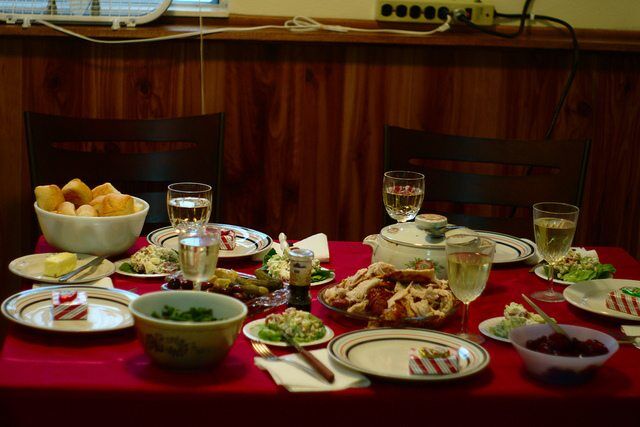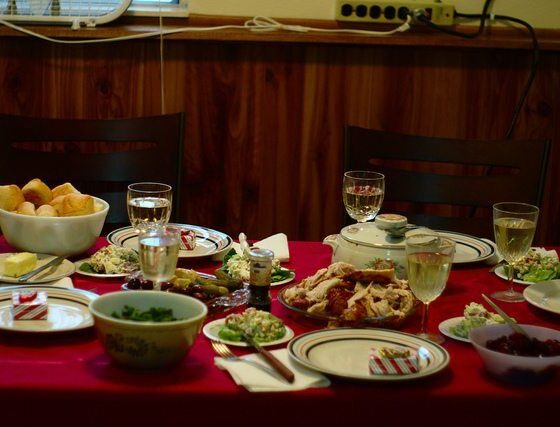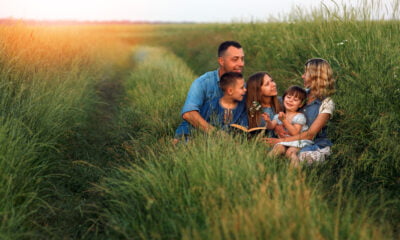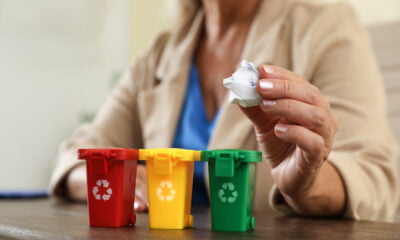

Environment
Nearly Half Of Brits Ate More Sustainably This Year
Due to animal welfare or environmental worries, 49% of adults in Britain have begun eating more ethically
Almost half of British adults are eating more ethically than last Christmas, according to new polling released today by Triodos Bank and Ethical Consumer. The research indicates a continuing trend towards ethical and sustainable food shopping habits as people hit the shops in earnest to stock up on supplies for a traditional Christmas dinner.
When surveyed by YouGov, British consumers indicated a strong preference in the last year for shifting their diet towards more environmentally- and ethically-friendly food:
• 49 percent of respondents said they had changed their diet because of environmental or animal welfare concerns
• 39 percent said they had bought free range meat or eggs
• 13 percent said they had tried to eat fish instead of meat
• 9 percent said they avoided red meat
• 8 percent said they were vegetarian or vegan.
Bevis Watts, Managing Director of Triodos Bank UK said: “As many of us prepare to gather around the festive dining table it’s heartening to know that these celebrations can now include food and drink that both tastes good and is healthy for us and our environment. Every pound we spend on ethical and sustainable food and drink is a statement of our values and a vote for a more resilient and sustainable food system.”
These consumer preferences showcase some of the motivations that are driving increasing trends towards ethical consumption. According to the soon to be released 2016 Ethical Consumer Market Report, increases in organic food and drink, sustainable fish, vegetarian products and Fairtrade wine markets point toward an ethical and more sustainable Christmas for many in the UK. In 2015, various ethical food markets saw strong increases:
• Organic food and drink increased by 4.5 percent to £1.7 billion
• The RSPA’s Freedom Food scheme increased in value by 28.6 percent to £1.5 billion
• Vegetarian products increased by 6.3 percent to £710 million
• Sustainable fish increased by 15.2 percent to £507 million
In a year where inflation was at zero percent, these trends show strong growth in the ethical food and drink sector. Furthermore, the overall UK food and drink market declined by 0.9 percent. This emphasises the significance of the growth of the ethical market and indicates a general trend towards more conscious consumer behaviour.
Additionally, although the value of free range eggs sold decreased by 3.6 percent to £609 million, this is due to a decrease in retail prices. The volume of free range eggs sold actually increased, resulting in an increase in market share.
Commenting specifically on the increase in organic food and drink sales Clare McDermott, Business Development Director of the Soil Association said: “Last year, 83% of households bought organic, and with renewed growth in the Organic Market, more and more people are looking to buy organic in order to avoid pesticides in their food and to avoid meat from animals routinely treated with antibiotics. The Soil Association is encouraging shoppers to swap one or two key Christmas dinner items like turkey, sprouts, carrots and potatoes to organic, which can make a surprisingly big impact. Organic food reduces exposure to potentially harmful pesticides and helps protect our vital wildlife.”
The ethical consumer market report is an annual survey of the value of UK sales from a wide range of products considered to be more ethical choices in a range of consumer markets. It has been run every year since 1999.


 Environment12 months ago
Environment12 months agoAre Polymer Banknotes: an Eco-Friendly Trend or a Groundswell?

 Features11 months ago
Features11 months agoEco-Friendly Cryptocurrencies: Sustainable Investment Choices

 Features12 months ago
Features12 months agoEco-Friendly Crypto Traders Must Find the Right Exchange

 Energy11 months ago
Energy11 months agoThe Growing Role of Solar Panels in Ireland’s Energy Future





























